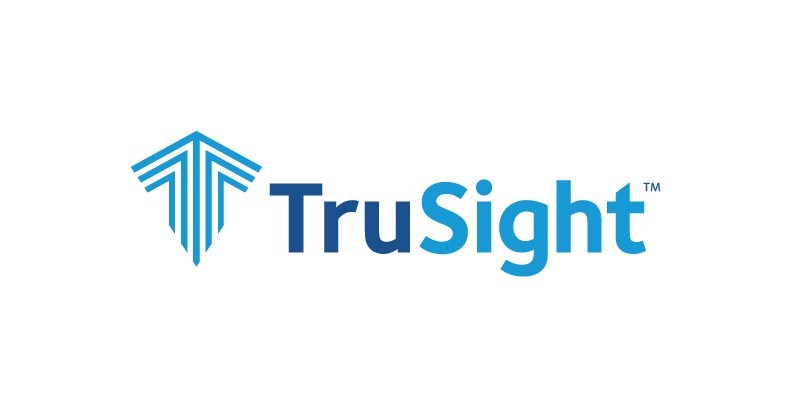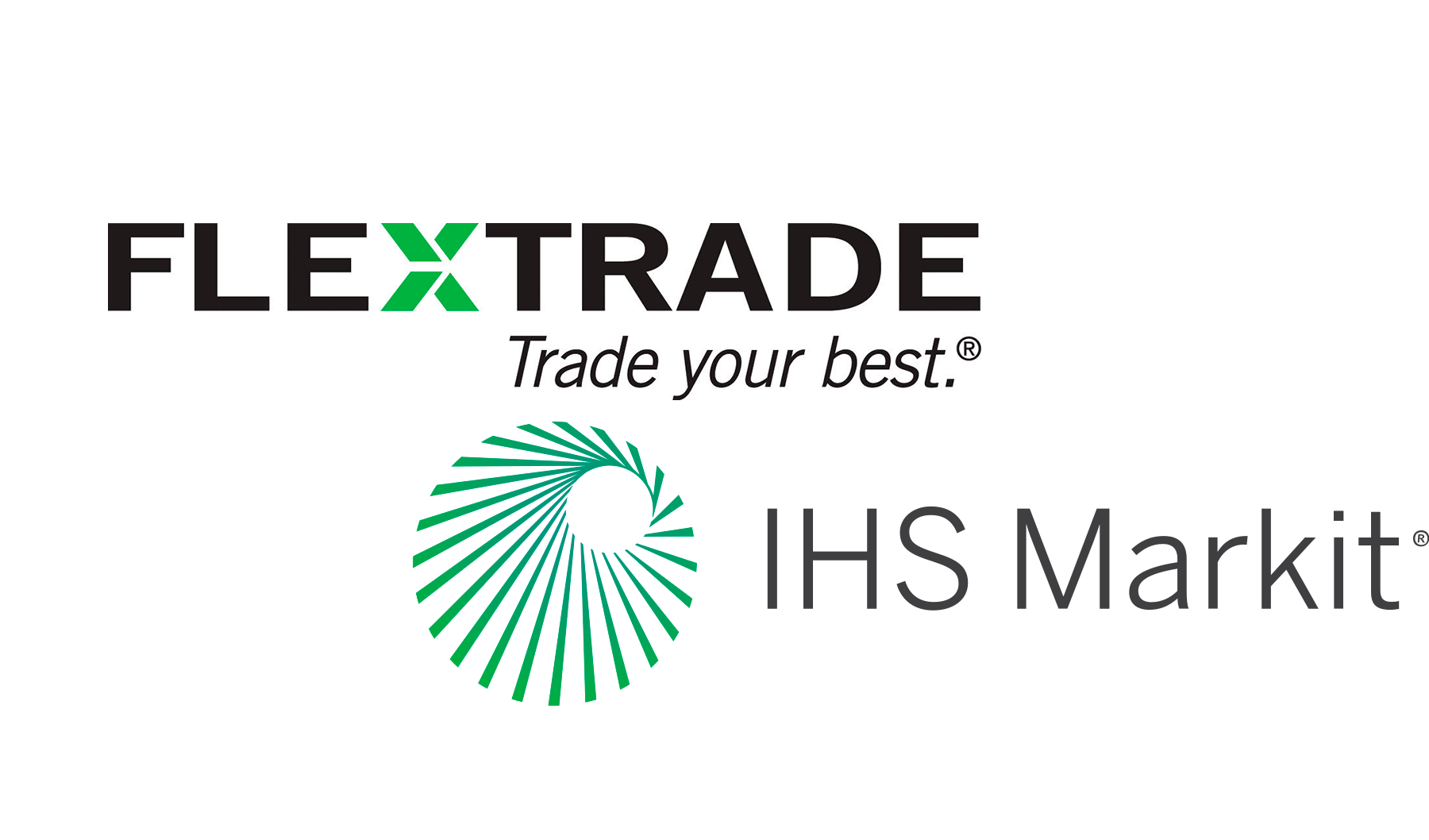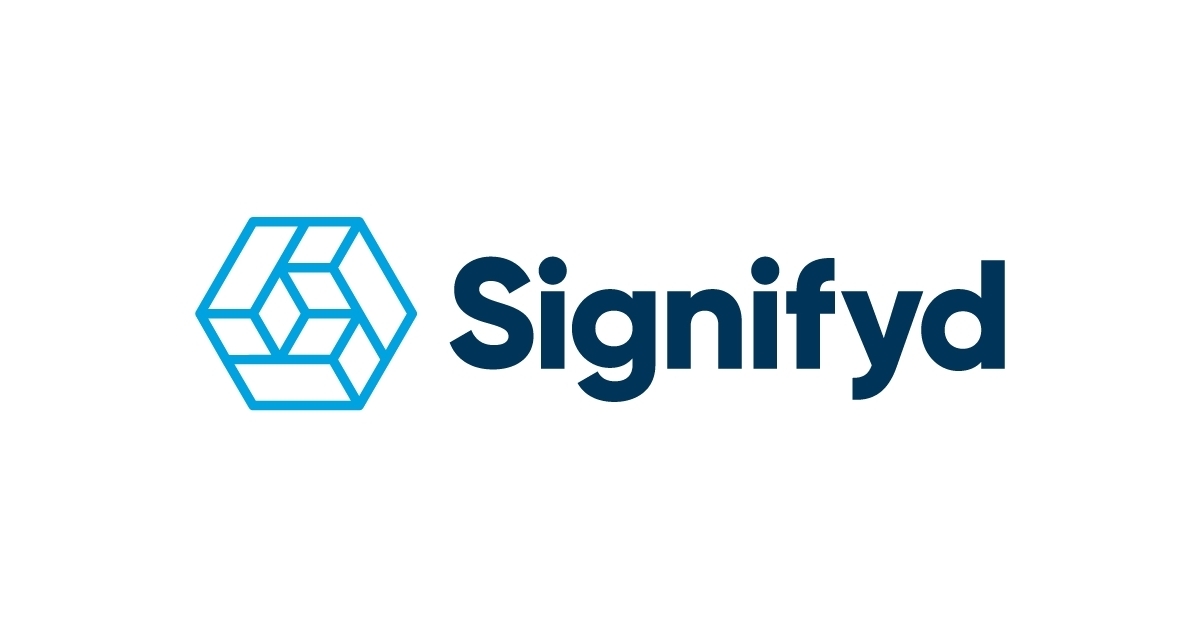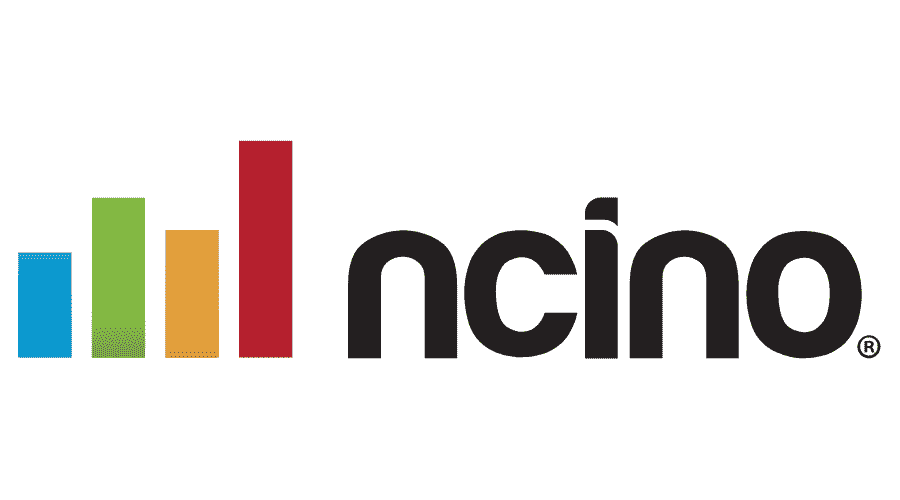Published
- 01:00 am

SEBA Bank has been granted a licence to act as a custodian bank for Swiss collective investment schemes pursuant to Art. 72 CISA (KAG) (the “CISA” licence)
The CISA licence allows SEBA Bank to provide one of the first institutional-grade custody solutions globally for collective investment schemes with liquid crypto or digital assets as the underlying investment universe, for professional investors
This licence allows SEBA Bank to offer Swiss domiciled funds a safe and progressive investment capability within the fast evolving crypto and digital assets space
SEBA Bank, a FINMA licensed Swiss Bank providing a seamless, secure, and easy-to-use bridge between digital and traditional assets, today announced that the bank has been granted a licence to act as a custodian bank for Swiss collective investment schemes pursuant to Art. 72 CISA (KAG).
This is the first licence granted in Switzerland by the Swiss Financial Market Authority (FINMA) to a custodian bank focused on digital assets. The CISA licence will accelerate SEBA Bank’s growth by extending its institutional-grade digital asset custody services to Swiss domiciled mutual funds in the fast-evolving digital assets space. This is an important new institutional capability in the evolution of digital assets investments across Europe.
This new licence extends SEBA Bank’s fully integrated digital asset investment activities by offering digital custody services for Swiss domiciled mutual funds, and is an important new enabler of liquid investment funds with crypto or other digital assets as an underlying investment class.
Guido Buehler, CEO of SEBA Bank, states, “Two years ago SEBA Bank received a Swiss banking and securities firm licence and is now enjoying excellent business momentum as institutional adoption of crypto & digital assets accelerates globally. With our new CISA licence, SEBA Bank continues its pioneering role in the institutional digital asset space. Asset Managers can now offer strategies based on crypto or other digital asset underlyings to a broader audience utilizing Swiss-based mutual fund structures secured by SEBA Bank as the CISA-licensed custodian.”
Related News
- 09:00 am

- CDMC is a comprehensive assessment and certification framework, encompassing business, operations, and technology best practices for cloud data management
Groundbreaking new industry framework, collaboratively developed with over 100 industry-leading companies including AWS, Google Cloud, IBM Cloud, and Microsoft Azure
CDMC incorporates 14 Key Automated Controls for protecting sensitive data
EDM Council, a cross-industry trade association for data management and analytics, has published the Cloud Data Management Capabilities (CDMC) framework for managing data in the Cloud. The CDMC framework, available for all industries, represents a comprehensive set of cloud data management capabilities, standards and best practices for cloud, multi-cloud and hybrid-cloud implementations, incorporating automated key controls for protecting sensitive data.
The CDMC framework was developed over the last 18 months by EDM Council’s CDMC Workgroup, with participation from leading financial industry firms, consultancies and technology companies, including Amazon Web Services (AWS), Google Cloud, IBM and Microsoft. It is chaired by Morgan Stanley and LSEG, with project management provided by Capco.
The CDMC framework is composed of six components, 14 capabilities and 37 sub-capabilities that allow companies across all industries to effectively manage their cloud environments. The six components encompass data governance and accountability, cataloguing and classification, data accessibility and usage, data protection and privacy, data lifecycle, and technical architecture.
“As the Cloud increasingly becomes a foundational component of emerging business models, the CDMC framework will be a valuable resource for accessing comprehensive and up-to-date best practices for data management, not only in the financial services segment but across all industries. AWS is proud to have contributed to the development of the framework and looks forward to continuing to support this collaborative effort,” said Scott Mullins, Director, Worldwide Business Development, Financial Services at Amazon Web Services.
"Cloud acceleration has skyrocketed as companies of all sizes and industries become more reliant on data to drive transformation," said Evren Eryurek, Director of Product Management for Data Analytics at Google Cloud. "The speed at which businesses are able to respond to change is the difference between those that successfully navigate the future and those that get left behind. The CDMC framework is going to be a tremendous resource for companies as they continue to accelerate their digital transformation and reimagine their business through effectively leveraging the power of real-time data."
“A critical next hurdle for the global financial services industry is the adoption of a standard set of best practices regarding the management of data in multi-cloud environments, particularly controls to protect data privacy and to comply with regulations. The dramatic rise of cybercrime combined with increased scrutiny from regulators on financial institutions, as stewards of their clients’ most sensitive data, makes a compelling case for significant investment and coordination in this space,” said Rajiv Chodhari, Vice President and Financial Services Data & AI CTO at IBM. “The EDM Council has taken an important first step in aligning the financial services industry and its partners on these issues.”
“We are thrilled to join the EDM Council in celebrating the release of the CDMC guidance to help the industry effectively manage data across cloud and hybrid environments,” said Mike Flasko, General Manager of Azure Data Governance Platform at Microsoft. “We greatly appreciate the opportunity to partner with everyone involved and are excited to see all the ways it will be used to further data management across industries.”
“The EDM Council is honored to have facilitated the development of the CDMC framework to provide an auditable and certified cloud data management best practice available as a free license for all industries,” said John Bottega, President of the EDM Council. “We’re very excited to be releasing the CDMC framework and appreciate the global industry efforts of everyone involved in this 18-month initiative.”
Related News
- 08:00 am

Avast research finds over half of SMB IT Decision Makers are more concerned about cyber security now than pre-pandemic
New research from Avast, a global leader in digital security and privacy, has found that security concerns among IT decision-makers (ITDM) in small and medium-sized businesses have grown since the start of the Covid-19 pandemic by 56%. The more employees, the more ITDM’s security concerns have grown. In businesses with 2-5 employees, 32% of ITDMs are more concerned since Covid, and the number grows to 76% in SMBs with 100-300 employees.
Percentage of ITDMs with more security concerns since the start of the Covid pandemic, per business size:
- 2-5 employees: 32%
- 6-10 employees: 55%
- 11-49 employees: 58%
- 50-99 employees: 68%
- 100-300 employees: 76%
The growth in employees working from home as a result of the pandemic is one of the main drivers for this level of concern. Covid-19 has completely reshaped the way companies, and their employees work. With the majority of the workforce now working remotely, the network perimeter has significantly widened and helping to secure that perimeter has now become a top strategic priority for many businesses.
Of the ITDMs surveyed in this study, 59% noted they found it difficult to keep up with securing employee devices while working from home. At the same time, 56% noted it is difficult to keep employees educated about cyber risks and how to avoid them while working from home.
“The last 18 months have been incredibly challenging for SMBs, and many have done well to adapt so quickly to changing working patterns as well as ensuring their employees can continue working as much as possible. IT decision-makers have had a tough job managing their workforce and keeping their business’ infrastructure intact and secure,” commented Marc Botham, VP Worldwide Channel & Alliances at Avast. “ It’s clear hybrid working patterns are here to stay, and as every device can be an entry point to the corporate network, SMBs need to develop a robust and comprehensive approach to cyber security. This doesn’t always have to be managed in-house, as professionally managed service providers can help manage and secure SMBs’ infrastructures remotely.”
Changes in remote working
Prior to the pandemic, 22% of SMB workers worked, and 27% of SMB ITDMs worked from home. Unsurprisingly, these numbers have grown in the last year, with SMB workers more than twice as likely (64%) to have been working from home in the last year than they had pre-covid.
Uniquely, working from home has not been consistent across countries, even with the pandemic impacting decisions. Over the past year, working from home has been much more common in the UK than in Germany - 64% of SMB workers worked from home over the past year in the UK compared to 44% in Germany. For ITDM, often in charge of on-site tasks, these figures were lower, at 57% in the UK vs 36% in Germany.
Challenges to address
When asked about some of the challenges and concerns related to employees working remotely, five main concerns emerged:
- More employees working on unsecured internet connections – a concern for 40%
- It is harder to manage security on employees’ devices remotely when they are working from home – a concern for 40%
- Employees using personal devices that have no security controls on them to connect to the IT network – a concern for 31%
- Employees working from home are less careful about what they do online, e.g. what they download – a concern for 34%
- Employees working from home means we have less visibility of our IT systems – a concern for 30%
Cybercriminals have taken advantage of the pandemic, with a 24% year over year increase of business users encountering a cyber threat observed by Avast[1]. Avast has seen an increase of 20% of ransomware attacks worldwide at the beginning of the pandemic. For example, with home office work, the Remote Desktop Protocol in conjunction with easy-to-guess passwords has become a popular attack vector.
Despite the challenges and the growth in concern amongst ITDMs, SMB workers have encouragement for their ITDM colleagues, with 75% noting their company did a good job of securing employees to work remotely during the Covid-19 pandemic. Further, 66% of workers agreed their company had learnt valuable lessons about running a remote workforce because of Covid.
The research was conducted in July 2021 by Dynata. It surveyed 500 IT Decision Makers in the UK and 500 in Germany, as well as 1000 SMB workers in the UK and 1000 in Germany.
Related News
- 02:00 am

TruSight and ServiceNow will provide financial institutions with even greater ease of access to TruSight’s validated third-party risk data
TruSight, the financial industry’s leading provider of validated third-party risk data, today announced that it has joined the ServiceNow Partner Program to enhance access to its industry-leading third-party risk assessment data and accelerate engagement with financial services institution customers and their suppliers.
TruSight is an industry-initiated utility that combines best practices and standardization to deliver comprehensive, validated third-party risk assessment data to financial services institutions. TruSight performs assessments according to its best-in-class standardized methodology, a robust compilation of key business, operational risk, and information security controls across 27 diversified control domains. Many of the world’s leading banks and their suppliers have adopted TruSight to streamline the third-party risk assessment process.
As a ServiceNow partner, TruSight will have access to ServiceNow’s tools and resources, and will be able to integrate its third-party risk data utility with ServiceNow’s industry-leading cloud-based Now Platform®. Additionally, TruSight will be releasing an integration for the Now Platform, to be listed on the ServiceNow Store, between the end of Q4 2021 and the beginning of Q1 2022. By formally combining their technologies, TruSight and ServiceNow can provide enhanced visibility and automation for financial services organizations that depend on TruSight’s validated data to manage and mitigate third-party risk.
“We are pleased to join the ServiceNow Partner Program, allowing our customers to easily access their third-party risk assessment data,” said Jonathan Pressman, CEO of TruSight. “This partnership between the premier platform provider and the leading third-party risk assessment data utility will be a significant enabler for clients in financial services and other industries.”
Related News
- 09:00 am

he appointment ushers in the next generation of leadership to the merchant services industry, bringing a fresh and diverse perspective to a more traditional financial sector
VizyPay, an award-winning leader in the payment processing industry for small businesses, today announced the appointment of Elizabeth Rucker, director of training and talent acquisition, to the Midwest Acquirers Association (MWAA) Advisory Board. The MWAA - an independent, regional trade association for those in the merchant services industry - distinguished Advisory Board provides expert guidance and education for the advancement of Payment Professionals, such as ISOs, MSPs and Financial Institutions.
“The MWAA is looking forward to celebrating our 20th anniversary in the summer of 2022 and continuing our mission to bring the industry together through thought leadership, education sessions and networking,” said Rod Katzfey, MWAA President. “We also continue to look for ways to connect with the next generation in payments and look forward to Elizabeth Rucker joining the Advisory Board to help us navigate this.”
Since its inception in 2017, VizyPay has been disrupting the payment processing space, and through Rucker’s appointment to the MWAA Advisory Board, the company has taken one of its largest steps forward in influencing the industry from within. Elizabeth’s appointment directly speaks to VizyPay’s unique culture and mission - bringing a diverse perspective and fresh faces to the payment processing world.
“I could not be more thrilled about my appointment to the MWAA Advisory Board, I take great pride in leading the charge for the next generation of payment processors and financial executives,” said Elizabeth Rucker, director of training and talent acquisition at VizyPay. “In this role and with the support of my VizyPay team, I look forward to helping advance the industry as well as the educational elements brought to fruition through the MWAA.”
For more information, visit https://www.vizypay.com/.
Related News
- 05:00 am

FlexTrade and IHS Markit collaborate to deliver an efficient and improved user experience for clients
FlexTrade Systems (@FlexTrade), a global leader in multi-asset execution and order management systems, and IHS Markit (@IHSMarkitFinSer), a global provider of analytics and solutions to buy- and sell-side firms, today announced the full integration of IHS Markit’s pre-trade Transaction Cost Analysis (TCA) data into FlexTRADER EMS.
The move is in response to ever-increasing demand from buy-side trading teams for more efficient workflows, interoperable data for improved, informed trading decisions, and a seamless user experience across their front office technology ecosystem.
Given its unique methodology and forecasting accuracy, the IHS Markit impact model has been adopted by trading desks to provide traders insight into their expected market impact and serve as a meaningful benchmark for measuring the difficulty of a trade. In addition, by isolating price risk from liquidity sourcing, IHS Markit pre-trade analytics allows traders or brokers to evaluate how they can source liquidity for an order, which can reduce overall trading costs.
With this API integration, traders using FlexTRADER EMS can now access IHS Markit pre-trade analytics embedded directly within their FlexTRADER EMS order blotter to enhance trading decisions at the point of trade, reduce the need to work between different applications, and minimize valuable desk real estate. Additionally, the integration allows for improved efficiency and a simplified low-touch workflow by enabling buy-side clients to use IHS Markit’s pre-trade analytics as criteria for automation. Having this data available in FlexTRADER EMS via automation also means clients can run TCA analysis comparing pre-trade vs post-trade data directly within their application, which delivers an overall improved user experience.
Andy Mahoney, Managing Director, EMEA at FlexTrade, commented: “FlexTrade is committed to proactively offering our client base integrations which deliver real tangible value and improve the user experience of the application. Our latest integration to IHS Markit’s pre-trade Transaction Cost Analysis solution further illustrates this commitment and ensures seamless interoperability between the technology providers our clients’ need. Providing IHS Markit’s valuable pre-trade data directly into the FlexTRADER EMS and aggregating it into a single view saves time, increases efficiency and improves trading decision making.
Our API-first approach creates a competitive edge for our client base and avoids the need for multiple different applications, on multiple desktops, and focusses instead on creating a single, seamless technology interaction.”
Michael Richter, Global Head of Trading Analytics at IHS Markit stated: “The IHS Markit pre-trade analysis tool can be used for both single stock and programme trading. It is designed to provide firms with pre-trade cost estimates, measurements of trading risk and cost/risk trade-offs relative to various trading strategies, including pre-trade analysis of portfolio, electronic and single stock orders. Through this integration, traders will be able to leverage the powerful insights of our industry-leading pre-trade solution from within the FlexTrade EMS.”
Related News
- 09:00 am

Firms’ partnership extends commerce protection earlier in the checkout process, providing safer online transactions for consumers and increased revenue and customer lifetime value for retailers
Signifyd is partnering with Capital One to extend its Authorization Rate Optimization solution to the bank’s payments ecosystem, improving the shopping experience for consumers and increasing retailers’ revenue by ensuring a substantial increase in successful online transactions.
Capital One’s partnership with Signifyd, the market leader in fraud and abuse protection, will help increase authorization rates and minimize the number of orders that are incorrectly declined due to suspected fraud on Capital One credit cards. The result: increased revenue and customer lifetime value for retailers, stronger cardholder loyalty for Capital One and more secure online shopping for consumers.
Signifyd is extending its Authorization Rate Optimization directly into Capital One’s Enhanced Decisioning Data API to provide identity intelligence across the entire shopper journey, while striking a better balance between conversion and fraud protection. The move provides Capital One with enhanced data and fraud insights to help determine whether a transaction should be approved or declined at bank authorization. With instant insights from the Signifyd Commerce Network at checkout, Capital One can increase authorization rates and decrease false declines.
“We are so pleased to partner with Capital One to solve a strategic issue for the ecommerce world,” Signifyd CEO Raj Ramanand said. “The very largest ecommerce sites globally can work directly with issuers to optimize their auth rates, but what do other merchants do? They come to Signifyd because we can optimize payment acceptance through our deep product integrations across the financial ecosystem.”
Through the Capital One partnership and others, Signifyd is able to securely connect ecommerce transaction data from the world’s largest network of online retailers to card issuers, unlocking higher conversion rates and superior customer experience.
Enterprise retailers and card-issuing banks have been grappling with the challenge of false declines at the authorization stage since the dawn of ecommerce. The numbers tell the story:
- As many as one in eight ecommerce dollars are declined during payment authorization, according to The Economist.
- Losses due to false declines in the U.S. will grow to $443 billion in 2021, the Aite Group says, more money than will be lost to fraud itself.
- The Aite Group also reported that 62% of surveyed merchants said their false decline rates have increased in the last two years.
The false declines problem has become a vicious cycle in an era when fraud rings are becoming more sophisticated. Criminals have advanced their attacks to earlier stages of the online payment process while turning to automation to carry out those attacks. Banks and merchants have reacted by declining payment at the authorization stage at increasing rates.
The resulting negative customer experience may lead to losing a shopper for life and may reduce credit card loyalty. In fact, two-thirds of consumers said they would stop shopping at an online retailer if they had an order declined for no apparent reason, according to a Survata poll conducted for Signifyd.
“There is no reason merchants and banks should miss the opportunity to create seamless customer experiences at checkout,” said Signifyd General Manager, Payment Solutions Okan Ozaltin. “Working directly with issuing banks such as Capital One means Signifyd can offer the kind of ecommerce protection that makes life better for merchants and their loyal customers.”
Signifyd’s Authorization Rate Optimization solution has been consistently delivering positive results since it launched more than a year ago. While the solution allows issuers to authorize 1% to 3% more orders on average, Signifyd customers leveraging pre-authorization risk analysis have seen far greater improvement in authorization rates by reducing the percentage of fraudulent orders they send to banks for approval. Walmart Mexico, for instance, realized a double-digit percentage increase in approved transactions with Signifyd’s Commerce Protection Platform and its Authorization Rate Optimization solution.
“Since we implemented Signifyd’s solution we have seen an increase in conversion rates and customer satisfaction,” said Blas Caraballo, vice president of digital payments and financial services for Walmart Mexico.
Related News
- 02:00 am

nCino, Inc., a pioneer in cloud banking and digital transformation solutions for the global financial services industry, today announced the appointment of Anthony Morris as SVP of Global Banking Strategy & Customer Advisory.
With more than 30 years of experience in the banking and software industries, Morris has successfully helped financial institutions around the globe define and deliver new operating models and practical transformation visions. As the Vice President and Global Head of Banking Go-to-Market at Salesforce for the past decade, Morris advised hundreds of bank customers on how to best leverage the cloud to deliver their digital transformation strategies across a variety of business lines, segments, and programs. In his new role at nCino, Morris will engage with nCino’s global bank customers and prospects to drive their adoption of the nCino Bank Operating System® and help refine go-to-market strategies to continue expanding the nCino ecosystem.
"Today, banks aren’t pondering if they should adopt cloud software, they want to know how and they expect the best cloud companies to help them define their transformation strategy,” said Josh Glover, President & Chief Revenue Officer of nCino. “Anthony has decades of experience working with financial institutions on their digital transformation programs and cloud strategy, with expertise across retail and commercial banking. His breadth and depth of experience and influential track record with financial institutions will further strengthen our ability to deliver transformational solutions to our customers around the world. We are thrilled to have Anthony onboard.”
“I’ve admired nCino for a long time as a partner while at Salesforce and am elated to now be an official member of the team,” added Morris. “COVID-19 has made it clear that every financial institution must digitally transform, and no other company is transforming this industry the way nCino is. I look forward to helping them continue to grow and build upon their strong reputation as a trusted partner to financial institutions of all sizes around the globe.”
Related News
- 03:00 am

F-Secure joins collaborative effort as new research finds more consumers than ever are taking action to address their cyber security and privacy concerns.
Cyber security provider F-Secure has become a 2021 STOP.THINK.CONNECT partner and a champion to support Cybersecurity Awareness Month, which marks its 18th year this October. The Champions Program brings together leaders from business, academia, government, and community groups to promote the awareness of online safety and privacy.
“We’re proud to add our voice to this essential online safety awareness and education initiative,” said Brian Murray, who leads F-Secure's North America Operator Business. “We know that we can only ask others to do their part to help secure our digital society if we do ours.”
New F-Secure research reveals how crucial the effort to build cyber security awareness is.
An international survey that has tracked consumers’ cyber security attitudes and behaviors since 2015 shows that concerns about cyber threats have risen to new heights, prompting users to take new steps to protect themselves:*
- The share of internet users who say they feel the internet has become a more dangerous place and have changed their online behavior as a result has risen from 58% in 2015 to 65% in 2021.
- 59% say their data privacy worries are on the rise resulting in new habits, up from 52% in 2015.
“Awareness is key, but it can be worse than useless if you don’t know what to do with it,” said Murray. “We’re thrilled consumers are matching their anxieties with action. And we want to do our best to make sure they’re taking the right actions.”
Cybersecurity Awareness Month’s main focus areas offer concrete steps everyone can take to protect their devices, data and identity. These include:
- Take steps to improve cyber hygiene, including using strong passphrases and multi-factor authentication along with running secure, updated software.
- Recognize and report phishing attempts whether it’s through email, text messages, or chat boxes.
- Empower individuals to join the mission of securing our online world by considering a career in cybersecurity.
“Technology gives us so much, still there are costs to being so connected,” said Murray. “With awareness backed by action, we can reduce those costs and do even more online.”
Join the effort and find resources from the National Cyber Security Alliance (NCSA) here and find out more about Cybersecurity Awareness Month Cybersecurity & Infrastructure Security Agency (CISA) here.
To get more cybersecurity safety insights from F-Secure experts, visit our Connected Life YouTube page.
*Source: F-Secure Consumer Surveys conducted in 2015 and 2021 in Brazil, France, Germany, UK, and US, n=4000 (800 respondents per country).
Related News
- 07:00 am

Mastercard Installments BNPL program to come to market in the U.S., Australia and the UK; Enables consumers to access this increasingly popular form of payment across its vast global acceptance network
- New Buy Now, Pay Later (BNPL) program gives consumers a flexible, ubiquitous way to pay online and in-store through equal, interest-free installments – an additional choice to debit, credit or prepaid cards.
- Mastercard Installments enables banks, lenders, fintechs and wallets the ability to offer BNPL experiences at merchants with flexibility across the entire acceptance network.
- Seamless integration into Mastercard’s trusted network enables merchants to quickly offer secure BNPL solutions backed by the security and peace of mind that comes with Mastercard.
- Mastercard Installments offers comprehensive consumer protections with respect to responsible data use and fee transparency.
- Mastercard to work with Barclays US, Fifth Third, FIS, Galileo, Huntington, Marqeta, SoFi, and Synchrony in the U.S., and with Qantas Loyalty and Latitude in Australia on the BNPL program.
To meet growing consumer demand for flexible, digital-first payment options, Mastercard today unveiled Mastercard Installments, a unique and innovative Buy Now, Pay Later (BNPL) program that delivers greater choice at checkout, both in-store and online.
Mastercard Installments uses the power of the company’s trusted network to make BNPL available to millions of consumers and merchants worldwide. It enables banks, lenders, fintechs, and wallets to offer a variety of flexible installment options to consumers - including a zero percent interest, pay-in-four model – without onerous integration into the merchant infrastructure, allowing them to quickly offer secure and competitive BNPL experiences at scale.
Mastercard Installments enables consumers to digitally access BNPL offers, either pre-approved through their lender’s mobile banking app or through instant approval during checkout. Pre-approved installments can be used directly on a merchant’s website, and can be stored in digital wallets including Click-to-Pay, to then be used online or in-store wherever Mastercard is accepted. Instant approvals during checkout will be available through Click-to-Pay shortly after launch. Consumers will have full transparency on lender practices up-front during the approval process, and unlike most current BNPL offerings, consumers will continue to benefit from zero liability fraud protection, the ability to challenge unrecognized charges, and the peace of mind that comes with Mastercard’s acceptance footprint.
“At the heart of it, payments come down to choice – and people want more from their money with greater flexibility and control in how they pay and where they shop,” said Craig Vosburg, Chief Product Officer, Mastercard. “Mastercard Installments has been built on our guiding principles to protect consumers and enable choice without sacrificing trust and security. It is a digital-focused way to pay today and tomorrow, delivered through consumer’s most trusted relationships with their banks and other lenders, at merchants of their choice.”
Mastercard Installments builds on Mastercard’s investments in open banking that help deliver a simple and convenient experience for consumers, merchants and lenders. As an elective option for lenders, with consumer consent, account-level transaction histories can be considered as part of the underwriting process, enabling credit to be safely extended to a greater number of shoppers. Open banking technology also facilitates the consumer’s preferred method of repayment, which may be their checking or savings account, a Mastercard debit card, or another payment product.
Key benefits of Mastercard Installments include:
- Consumers: The Mastercard Installments program enables consumers to choose how and when they pay for items from a brand they can trust. Consumers enjoy a seamless experience before and after checkout through options to access BNPL offers, or secure an offer at the time of checkout, from trusted lenders for use at a variety of merchants interest-free. As consumer protection is paramount at Mastercard, Mastercard Installments provides ubiquitous acceptance backed by zero liability fraud protection, not yet available through most current BNPL offerings.
- Merchants & Acquiring Banks: The Mastercard Installments program helps merchants scale BNPL offerings to consumers to turn convenience into a competitive advantage. BNPL solutions have been shown to increase average sales by 45 percent and reduce cart abandonment by 35 percent post-implementation*. Mastercard Installments provides seamless merchant integration with a streamlined process for millions of merchants who already accept Mastercard. Meanwhile, acquiring banks can offer installments capabilities to their entire merchant base with minimal, simple integration.
- Lenders: Through the Mastercard Installments Program, lenders can offer a flexible, seamless BNPL experience to both existing and new customers, expanding their lending opportunities in one of the fastest growing consumer segments. Mastercard Installments provides an expedited time to market and global expansion opportunities with a responsible lending approach.
- Wallets and BNPL players: Digital wallets and BNPL players can easily integrate Mastercard Installments’ APIs and deploy the solution to consumers and already integrated merchants, extending reach beyond their existing footprint. Mastercard Installments is embedded in the core Mastercard network, which means there is no longer a need for wallets and BNPL players to build direct settlement arrangements with merchants or acquirers. BNPL providers can also supplement their existing networks with additional merchant acceptance.
Fueled by changing consumer spending habits during the pandemic, BNPL adoption continues to accelerate globally. In addition to consumer demand, the momentum is being driven by issuer and merchant desire to deliver new, complementary ways for consumers to shop both in-store and online.
Mastercard Installments will also provide access and support to a new suite of APIs to power each step of the BNPL journey; from installment calculation to multiple repayment options, all delivered securely and at a global scale through the Mastercard multi-rail network. Learn more on Mastercard Developers.
Mastercard Taps Key Partners in the U.S. and Australia
Mastercard Installments will first come to market in the United States, Australia, and the United Kingdom (UK). Mastercard is working with Barclays US, Fifth Third, FIS, Galileo, Huntington, Marqeta, SoFi, and Synchrony in the U.S., and with Qantas Loyalty and Latitude in Australia. Mastercard is committed to supporting its customers across the globe to offer the Mastercard Installments program, with plans to scale to other markets in the future.
Denny Nealon, CEO, Barclays US Consumer Bank said, “Barclays US Consumer Bank is excited to partner with Mastercard as it introduces its new BNPL solution. Our ambition to be the premier choice for America’s best brands hinges on our ability to deliver a full suite of products that meet and exceed the needs of our partners and customers. Mastercard Installments leverages the full power and reach of the Mastercard Network and will complement the highly-customized credit and lending solutions we offer to our partners that drive their businesses forward while delighting their customers.”
Howard Hammond, Executive Vice President and Head of Consumer Banking at Fifth Third Bank said, “We are excited to see Mastercard bring this BNPL solution to the market to provide customers more choices and ease concerns about payment. This new Mastercard Installments program meets the growing demand for flexible options both at the checkout and online.”
Vicky Bindra, Chief Product Officer, FIS said, “BNPL is one of the fastest growing alternative payment models globally - it is transforming the traditional purchasing experience for both consumers and merchants. The rapid growth of BNPL is rooted in the choice, flexibility and expediency it gives shoppers. We are delighted to partner with Mastercard to provide pioneering services to new and existing customers; this collaboration will spearhead further innovation in the space, making BNPL more accessible to merchants and consumers, while driving confidence and trust across the ecosystem to bring increased adoption.”
Amit Dhingra, Retail Payments and Consumer Lending Director, Huntington National Bank said, “We are pleased to see Mastercard continue to develop innovative payment features, like Buy Now, Pay Later for consumers and merchants. We recognize the need for customers to have greater choice and flexibility in new and different ways to manage their finances.”
Ahmed Fahour, Managing Director and Chief Executive Officer, Latitude Financial said, “Through our long-standing partnership, Latitude is looking forward to working with Mastercard to bring new BNPL payment solutions to life in Australia, benefiting merchants and providing customers with a superior shopping experience.”
Salman Syed, SVP/GM North America at Marqeta said, “Mastercard has taken a forward-thinking approach to enabling the Buy Now, Pay Later ecosystem with their new Installment Program. It allows BNPL providers and financial institutions access to a merchant network that encompasses anywhere Mastercard is accepted, and Mastercard has done the hard work of building out the network infrastructure to support that. We’re excited about the possibilities for new innovation opened up by combining Mastercard Installments with Marqeta’s modern card issuing platform and see this being an attractive proposition for banks and fintechs alike.”
Anthony Noto, CEO of SoFi said, “As a digital personal finance company with a passion to help people get their money right, we pride ourselves on bringing products and features that meet our members’ wants and needs when it comes to saving, spending, and borrowing money. The demand for a new way to pay via BNPL within a debit account like SoFi Money is clear; SoFi is thrilled to be deepening its partnership with Mastercard to bring this technology to life.”
Michael Bopp, Chief Growth Officer at Synchrony said, “Mastercard’s enablement of BNPL offerings across their network will further empower merchants and consumers with access to a greater variety of payment options. We are committed to providing our partners and customers with choice, flexibility and long-term value, and we look forward to exploring ways we can collaborate with Mastercard in this endeavor.”









